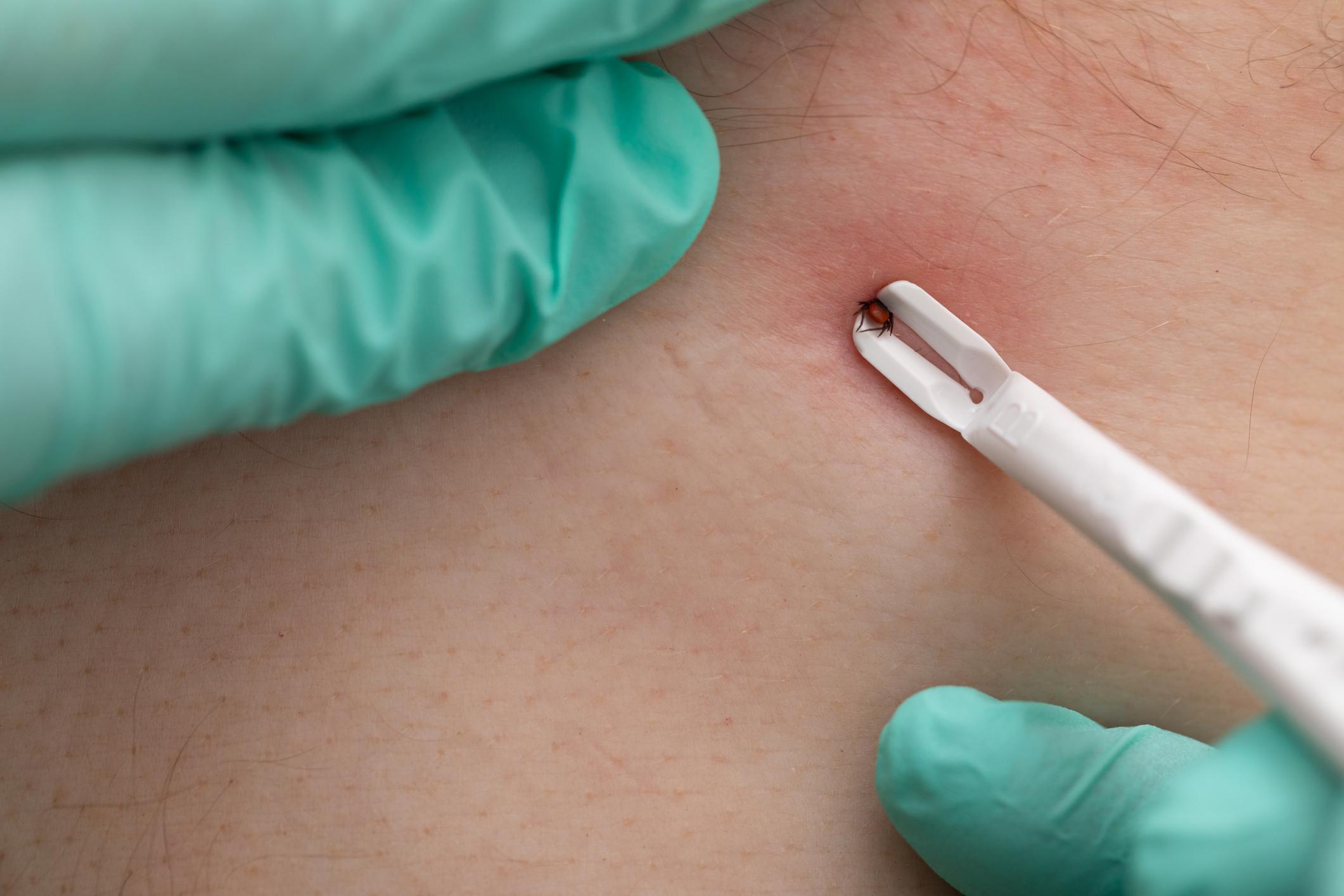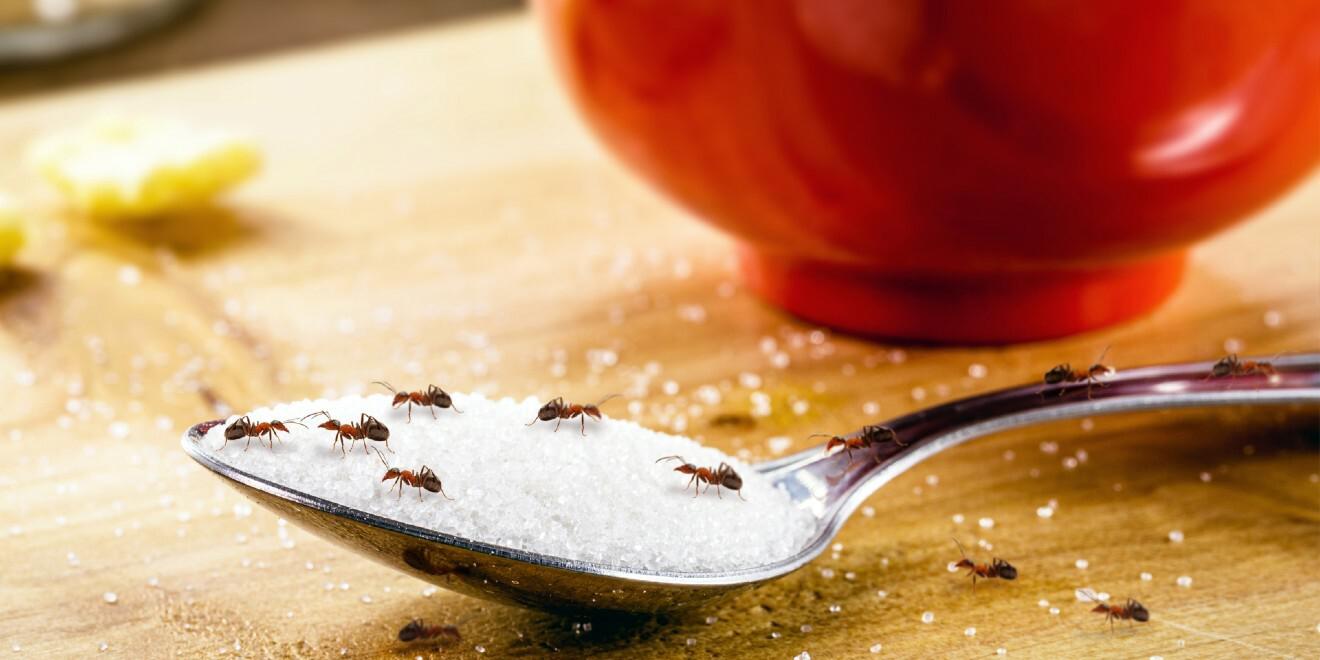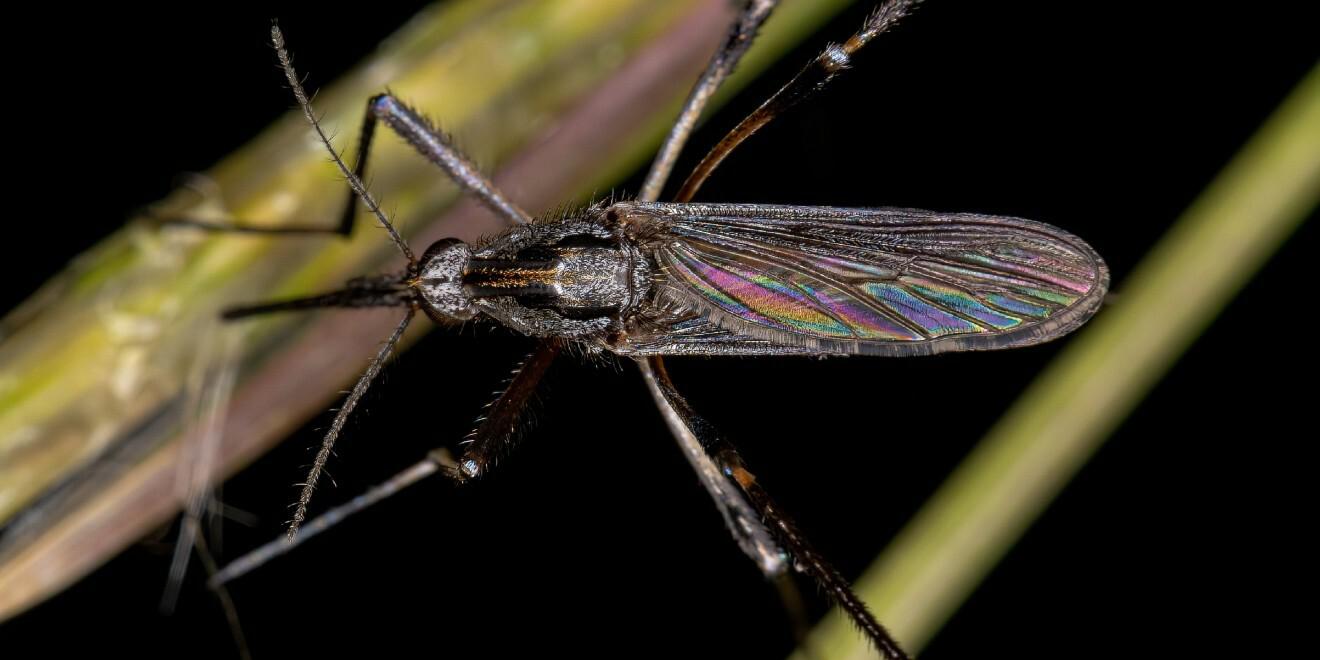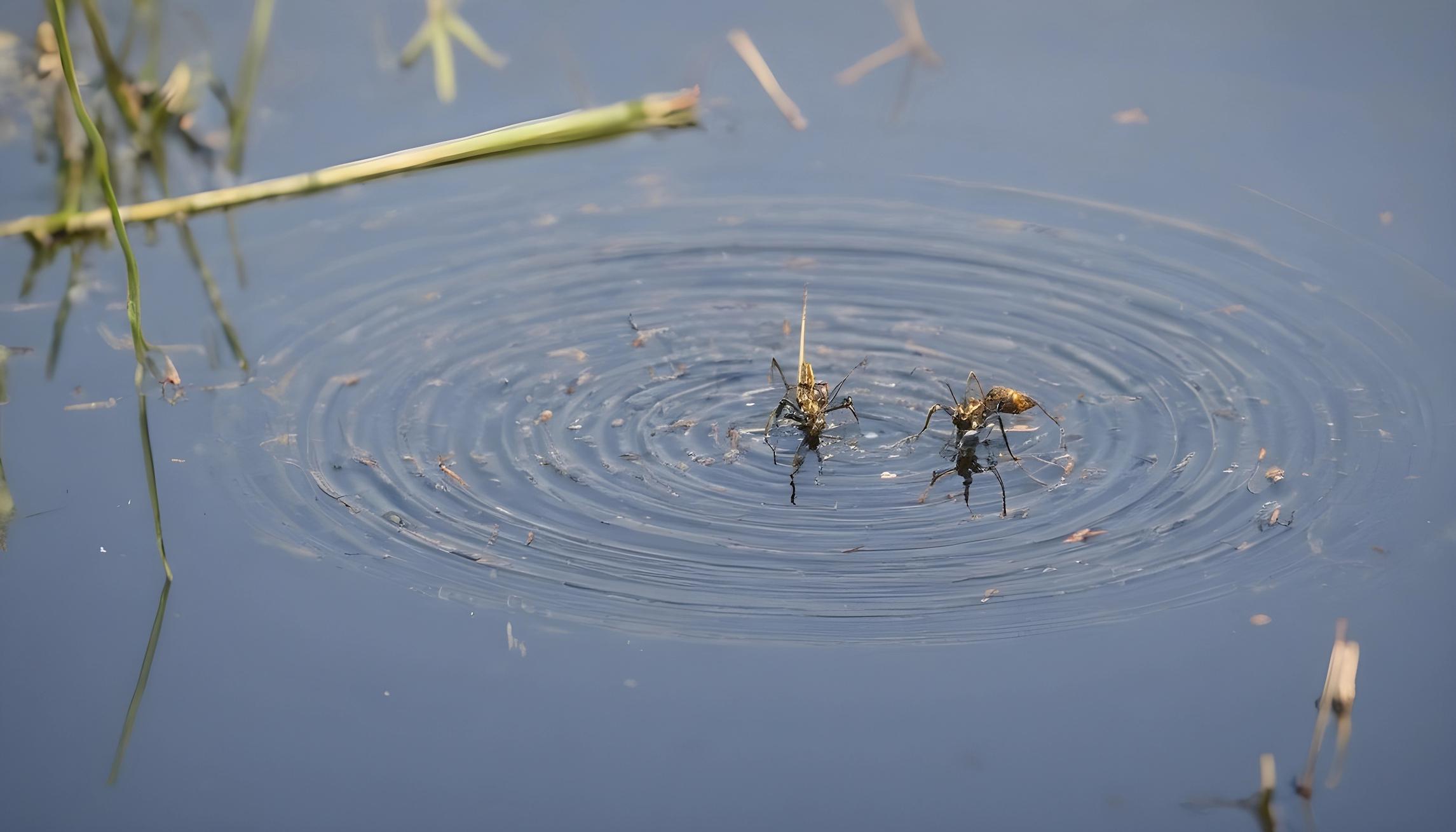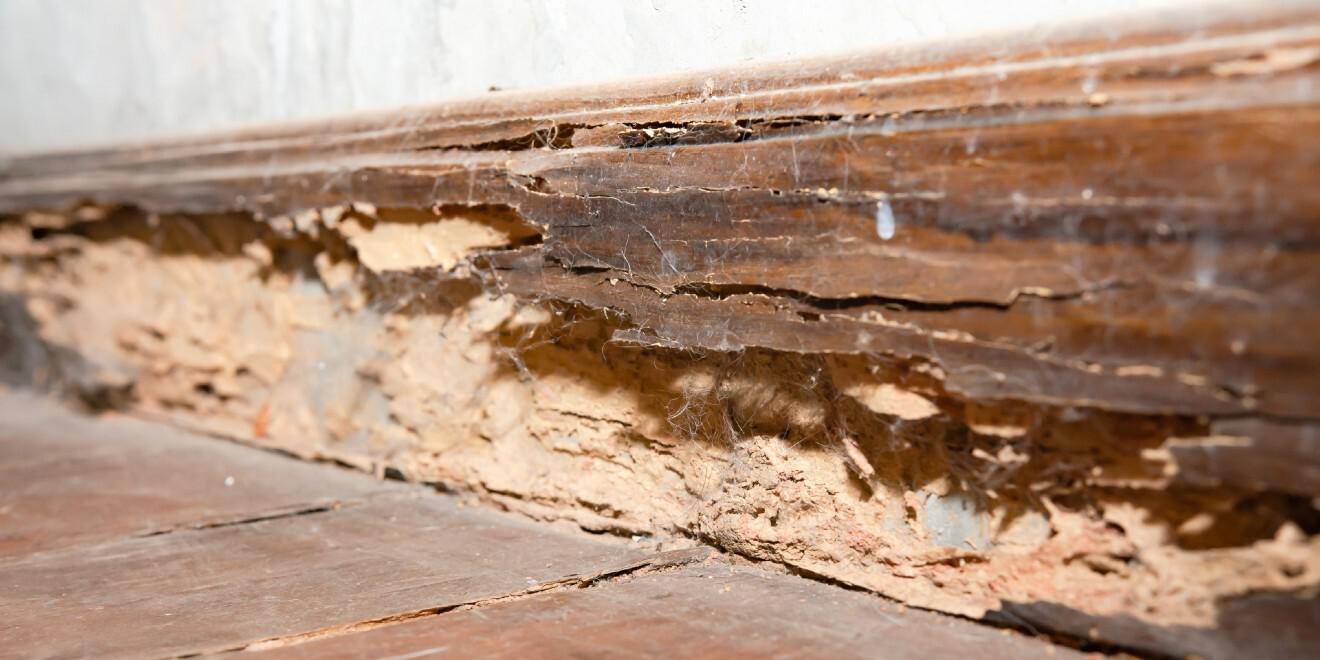Dengue Fever Outbreak: Assessing the Risk in Southeastern Mass
Posted by Mosquito Squad
June 12, 2024

Over 5.1 million people have been infected with dengue fever in the Americas in 2024. We are only four months into the year, and we’ve already surpassed the total cases for all of 2023, and these record-setting numbers will continue to climb. Where, what, why, and how has dengue fever surged in 2024, and what is our risk in Southeastern MA?
Dengue fever outbreaks are currently concentrated in tropical locations such as Vietnam, Bangladesh, Brazil, Paraguay, Argentina, Peru, and Puerto Rico. In 2024, the Caribbean and Latin America experienced three times as many Dengue cases compared to 2023. Puerto Rico and parts of Brazil have declared states of emergency due to the intensity of the outbreak.
There also have been some cases in Florida and Texas. Domestic cases are expected to climb as mosquito season ramps up.
What is the Cause of the Dengue Outbreak?
Aedes aegypti mosquitoes are the species that transmit the dengue virus. They thrive in small containers of standing water found in densely populated urban areas. The 2024 surge in dengue fever is a complex issue caused by multiple factors, including:
- Climate change (warming temperatures) increasing mosquito activity
- Heavy rains from El Nino which creates more standing water
- An increase of people living in urban areas
- A high volume of global travel
How is Dengue Virus Spread?
Dengue virus is spread to humans from the bite of an infected mosquito. When a mosquito bites an infected person, it ingests the virus along with the blood. The virus then multiplies within the mosquito's body for about a week before it can be transmitted to another person. If the infected mosquito bites another person during this period, it can transmit the virus, potentially leading to the development of Dengue fever.
What is the Transmissibility of Dengue in Southeastern MA?
Travelers account for most dengue cases in the U.S. - but local transmission is beginning to occur in places where the Aedes Aegypti is well established, and there are enough cases to create human to human transmission via a mosquito bite. So far, local transmission has only been reported in Florida.
While the Aedes Aegypti is not highly prevalent in Massachusetts, according to the CDC, there are currently 31 cases of dengue reported in our state - from people who have traveled. A large, locally transmitted outbreak is not likely to occur here. However, it only takes one bite. Mosquito bite prevention is crucial.
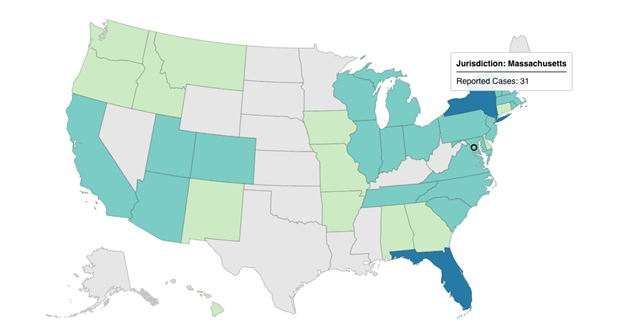
Dengue Fever Symptoms
The good news is that almost two-thirds of people with dengue show no signs of the disease.
However, those who do will experience symptoms within about two weeks. Those symptoms may include a combination of headache, high fever, joint pain, rash, fatigue, nausea, and vomiting.
Severe dengue can be life-threatening. In serious cases of dengue, bleeding gums and severe abdominal pain can occur and require immediate medical attention.
Treatment and Prognosis of Dengue Fever
According to the CDC, there is no cure for dengue fever. Symptoms usually last from 2-7 days. There is currently no specific treatment for dengue fever either. If you suspect dengue, see your doctor.
The best method of preventing dengue and other mosquito-borne illnesses is to avoid mosquito bites. At home, this means taking proactive measures such as investing in mosquito control services. When out and about, use mosquito repellent on exposed skin and keep skin covered as much as possible.
If you are traveling to regions currently experiencing a surge in dengue cases, it's advisable to stay informed about CDC travel advisories for dengue fever.
By staying informed about dengue fever, recognizing its symptoms, and adopting preventive measures, you can reduce the risk of infection. At Mosquito Squad of Southeastern MA, we're committed to helping you enjoy your outdoor spaces with fewer mosquitoes. Contact us today to learn more about our traditional barrier treatment and our natural mosquito treatment options.










